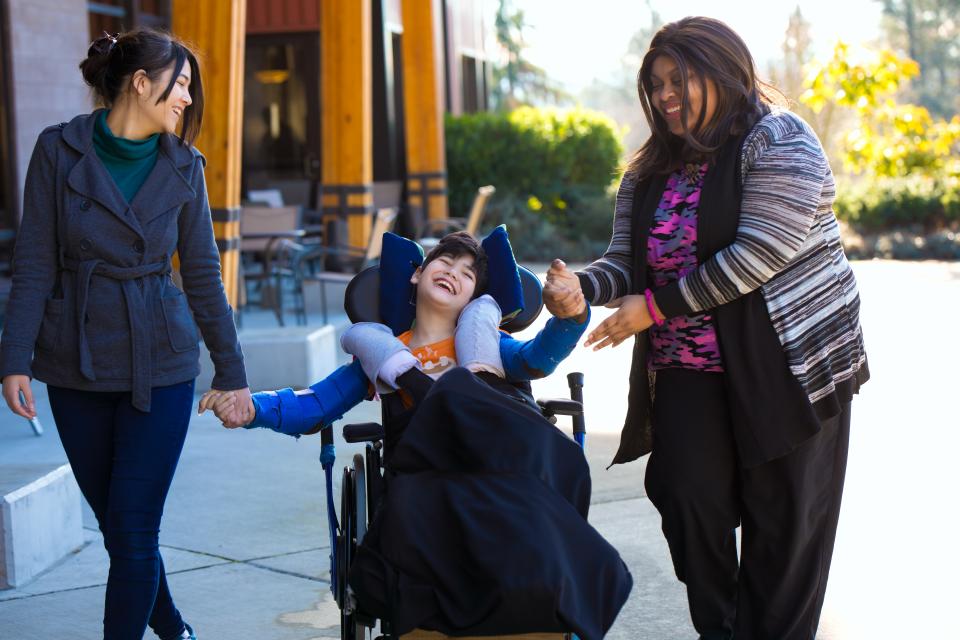Major Decisions about Your Child's Upbringing
As children grow, their physical, mental, and emotional needs change. To meet these changing needs, parents must make updates to how their child is being raised. For parents with joint legal custody of their children, they will have to work cooperatively to make these decisions together. But these decisions are rarely simple, regardless of family structure, and accounting for differences in opinion between co-parents can make the process that much thornier. However, making these changes to a child's upbringing is best done amicably and harmoniously. To achieve that, parents can employ many different strategies, but first, they'll need to know which decisions are considered to be major.

What constitutes a major decision?
The definition of what constitutes a major decision about your child's upbringing can be frustratingly vague. For clarification, many descriptions of major decisions include the examples of where a child attends school, their religious tutelage, and any healthcare they may receive.
Parents may want to consider major decisions as those that have a profound and lasting effect on the day-to-day lives of their children. Deciding which extracurricular activities to enroll your child in for the year, especially if expenses for said programs are shared between co-parents, could constitute a major decision. When to bring your child to the barber for a haircut may not. If parents are ever unsure whether a particular decision should be considered major or not, they should consult their parenting plan or family law practitioner for assistance.
Tips for handling major decisions
Plan well in advance
Last-minute discussions about major changes are stressful, and introducing stress into any conversation between co-parents invites conflict into the mix.
When possible, big changes to your child's upbringing should be addressed as far in advance as possible. This may not always be practicable, as parents may need to make emergency decisions about medical care or schooling. Nevertheless, the more time parents can give each other to think through an issue, the more likely they can approach it amicably and thoughtfully.
There are certain discussions about your child's upbringing that can be easily anticipated. Scheduling summer activities or discussing where your child will attend high school are just two examples of decisions that parents should see coming. You don't need to make the actual decision months in advance but introduce the topic early so you both have time to ruminate on possible solutions.
Keep conversations respectful
It's impossible to handle major decisions efficiently if conflict is allowed into the mix. That does not mean that co-parents cannot disagree with each other; however, even when in disagreement, parents should aim to keep their discussions respectful and productive.
If parents feel the conversation becoming heated, it may help to take a break and revisit the issue when everyone is working with a clear head. Parents shouldn't use a general discomfort with disagreement to derail conversations, though. Completely avoiding conflict isn't the same as resolving it, and parents should still be able to have tough conversations as long as they're not devolving into threats or insults.
Face-to-face conversations may be too much to handle for some co-parents. The immediacy of such interactions puts a strain on parents who have a history of conflict in their communication. Instead, parents may want to employ methods that give them time and space to reply to each other. This allows parents to overcome knee-jerk reactions to comments and questions and instead provide thoughtful responses that don't instigate arguments.
The OurFamilyWizard website provides a much-needed alternative to face-to-face conversations. On the OurFamilyWizard Message Board, parents can even enlist the extra help of Tonemeter™ to keep their conversations on track. Plus, the record of communication on OurFamilyWizard is permanent and concrete, so parents don't have to worry about finding information if they need to reference previous conversations about major decisions.
Be open to compromise
Not all decisions about a child's upbringing will be appropriate for compromise. But when situations are more nuanced and there are multiple solutions to a question, parents should be able to compromise with each other to come to an agreement that's in the best interests of their children. As long as solutions do not jeopardize a child's health or safety, be open to the possibility that your solution to an issue may not be the only or best way to move forward.
Enlist the help of a professional
Struggling to come to an agreement does not necessarily require a return trip to court. Neutral, third-party professionals, such as mediators, can aid parents in coming to an agreement amicably. Where parents may have difficulties seeing a way forward in their discussion, mediators can highlight avenues for compromises that parents may have overlooked.
Bad habits in communication can be deeply ingrained, which makes it difficult to see patterns that repeat whenever disagreements flare up. Therapists and mediators can help identify those habits as well as provide methods for overcoming any counterproductive, ingrained behaviors. Beyond aiding parents in solving the matter at hand, professionals can give parents the framework they need to solve issues independently in the future.
If discussing major decisions on OurFamilyWizard, parents can grant their mediator or mental health practitioner access to oversee their communication. Professionals can gain key insights into what causes communication to break down much more readily when they can see the whole picture.
When you're at an impasse
Some co-parents may have a difficult time coming to agreements about their child's upbringing despite their best efforts. This can cause co-parenting to come to a standstill. But questions about a child's upbringing must be answered in order for that child's changing needs to be met. If questions are left to fester, unanswered, parents will have a difficult time in accommodating their child's changing developmental needs.
Pursuing sole legal custody
If one parent is consistently refusing to meet their co-parent halfway in handling major decisions, family law practitioners may need to be consulted. In severe cases where discussions are not being resolved, judges may order sole legal custody to one parent. Parents with sole legal custody are able to make major decisions about their children's upbringing independently and without the direct input of their co-parent.
Requesting sole legal custody is a major decision that should not be taken lightly. Parents should consult their family law practitioner before pursuing a modification to their parenting arrangement.
Final decision-making authority
In some states, to prevent stalemates between co-parents who share joint legal custody, parenting agreements may grant one parent with final decision-making authority. Typically, final decision-making authority does not grant that parent the ability to unilaterally make decisions about their child's upbringing; however, when at an impasse, the parent with final decision-making authority can use their best judgment to choose a solution to the problem.
Review your parenting plan or parenting agreement
When final decision-making authority is shared, parenting agreements may outline the process through which parents must mediate disagreements about their child's upbringing. Parents should consult their parenting agreement concerning major decisions and follow the plan outlined therein. If after all designated steps have been taken an agreement has still not been met, parents have the option of petitioning the court to make a decision. The process for petitioning the court is dependent on location, so be sure to consult a family law practitioner for information on how to proceed.
The details of a child's upbringing have a significant impact on their life and well-being, so parents who share joint legal custody must approach these discussions with care and attention. Decisions must always be made with the best interests of the child in mind. That requires parents to remain respectful, plan well in advance, and be willing to compromise. But if cooperation cannot be achieved independently, parents should reach out to the legal and mental health practitioners they trust for assistance. Ultimately, though, collaborating on these decisions when possible will be better for both parents and children in the long-run.
NOTE: Many state and federal laws use terms like ‘custody’ when referring to arrangements regarding parenting time and decision-making for a child. While this has been the case for many years, these are not the only terms currently used to refer to these topics.
Today, many family law practitioners and even laws within certain states use terms such as ‘parenting arrangements’ or ‘parenting responsibility,’ among others, when referring to matters surrounding legal and physical child custody. You will find these terms as well as custody used on the OurFamilyWizard website.







